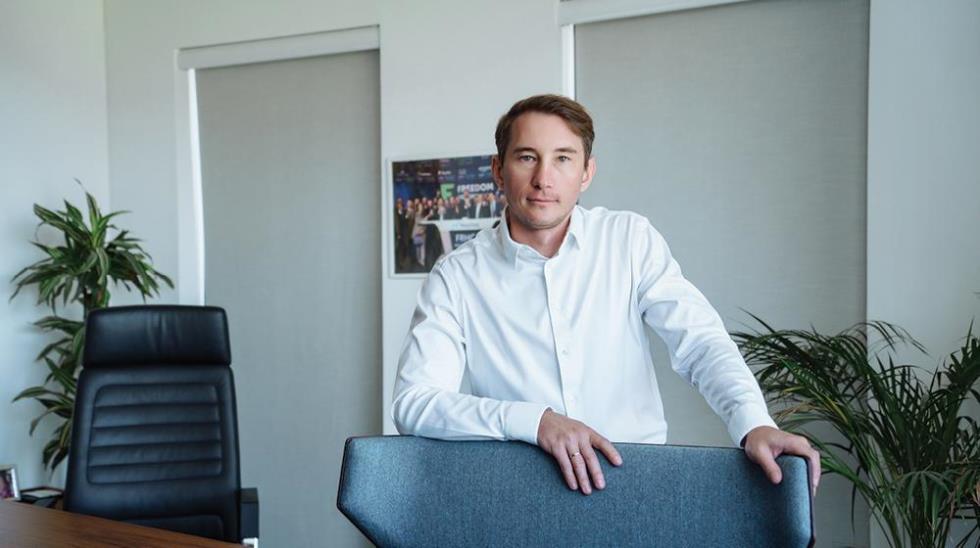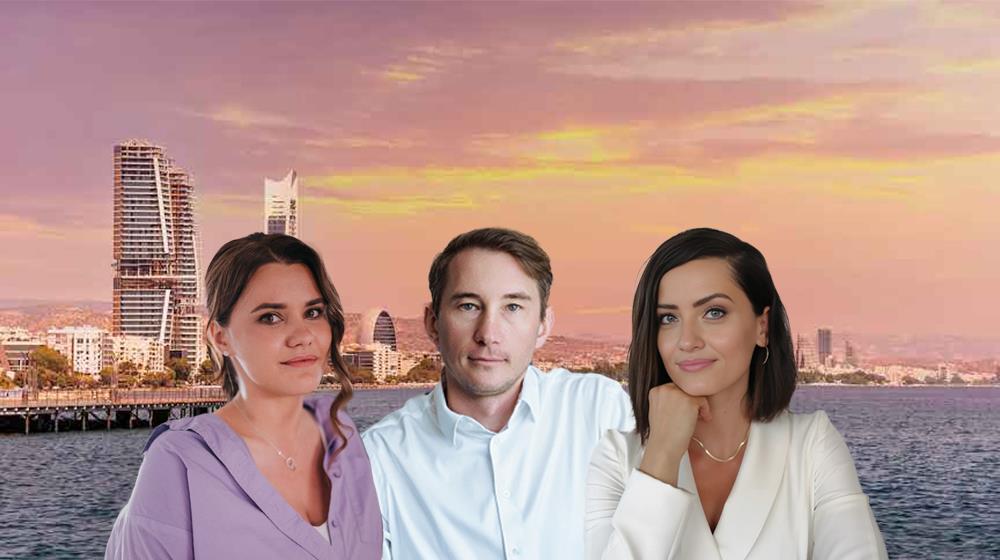With its sun-kissed coastline and growing reputation as a business hub, Limassol has become a magnet for international professionals. But what’s it really like to live and work in Cyprus’ second biggest city, beyond the seafront towers and promising headlines?
We spoke to three foreign executives who’ve made Limassol their base: Anastasiia Vinogradova, Chief Growth Officer at TheSoul Publishing, Evgenii Tiapkin, Executive Director at Freedom24, and Daniela Egli, CEO of The Trading Pit.
Their stories reflect a city in transition, one that combines Mediterranean comfort with increasingly global ambitions. From fast-evolving infrastructure to traffic bottlenecks and talent pipelines, these insiders offer a grounded view of what’s working, what’s not and what could help Limassol move from good to great.
Anastasiia Vinogradova, Chief Growth Officer, TheSoul Publishing

When Anastasiia Vinogradova relocated to Limassol in 2019 to join TheSoul Publishing’s headquarters, she expected sunshine and serenity. What she found, instead, was a city that punches well above its weight. “I imagined a calm, sunny place that would be great for quality of life,” she says. “But what I discovered was a dynamic, international business environment.” Limassol’s size – compact but connected – turned out to be a strategic advantage. Everything is close, people are open, and one can build meaningful connections quickly. But the biggest surprise was the balance between focus and freedom. “It’s one of those rare places where you can enjoy a peaceful lifestyle and still be part of something globally ambitious,” she says.
As Chief Growth Officer at one of the world’s largest digital media publishers, Vinogradova is keenly attuned to what makes a city work – and where it still needs to grow. Limassol has emerged as a top-tier destination for professionals in tech, digital media and startups. “The infrastructure is modern and easy to navigate, which removes a lot of typical friction. But what really stands out is the growing ecosystem and sense of community,” she notes.
She credits organisations like TechIsland for fostering that growth by connecting professionals, advocating for the industry and making Cyprus a more attractive destination for global talent and innovation. “It’s a sign that the business environment here isn’t just growing – it’s maturing in the right direction,” she says. While the work culture – a blend of structure with Mediterranean informality – takes a bit of getting used to, it creates a refreshingly human way of doing business for those who value adaptability and relationships.
Still, there’s room for improvement. Vinogradova points to the need for deeper investment in education, particularly in digital skills and entrepreneurship. “We need more foundational programmes that help young people see a future for themselves here,” she stresses. Her wish list includes project-based learning in schools, skills-building programmes for teens and young adults and a government-backed internship initiative linking students with local companies. “It would give young professionals valuable experience and a clearer path to staying, growing and contributing here in Cyprus. It’s all about creating a learning environment that’s as forward-thinking as the business scene itself,” she argues.
Evgenii Tiapkin, Executive Director, Freedom24

For Evgenii Tiapkin, Executive Director of Freedom24, moving to Limassol in 2014 wasn’t exactly a leap into the unknown. Cyprus had long been like a second home, where he spent summers as a student and where his relatives owned a house. “I remember the Cyprus of the early 2000s: a relaxed, safe place where we didn’t even lock our doors,” he recalls. “That sense of simplicity and safety left a lasting impression.”
When he eventually made the permanent move, Tiapkin already understood the island’s climate, culture and pace of life. What he didn’t expect was just how rapidly Limassol would evolve. “Over the last decade, it has transformed into a vibrant international business hub, while still retaining its Mediterranean charm,” he says. “That mix is unique.”
It’s also highly functional. As the European operational base for Freedom24 – a platform for online trading – Limassol has proven its worth. “It’s a highly efficient city for business, especially in financial services,” says Tiapkin. The combination of EU-aligned infrastructure, a skilled and multilingual workforce and a clear regulatory framework makes the city an attractive location for firms looking to scale in Europe. “Freedom24 has been headquartered here for ten years. The ecosystem not only works – it keeps improving,” he adds.
But it’s not without growing pains. One challenge, in Tiapkin’s view, is mobility. “Limassol has grown fast and so has traffic,” he says. “Smarter urban mobility solutions would make life and business even better.” Still, the verdict is clear. For Tiapkin, Limassol offers the best of both worlds: a reliable business environment backed by European standards, and a lifestyle shaped by sun, sea and safety. “It’s a fantastic place to be,” he says.
Daniela Egli, CEO, The Trading Pit

When Daniela Egli first arrived in Limassol 17 years ago, it was meant to be a short post-graduation break from her native Romania. “I thought I was just coming for the summer,” she says. What she found instead was a city already on the rise, with a growing international community, career opportunities and a way of life she hadn’t expected. “The warm climate was a big change from the winters I was used to and I was pleasantly surprised by the balanced lifestyle – a mix of work, sunshine and a more relaxed pace of life.”
That mix kept her in Cyprus and helped shape a career that eventually led her to the helm of The Trading Pit, a fast-growing, multi-asset proprietary trading firm. Over the years, Egli has watched Limassol evolve into a regional business hub. “It deserves an 8 out of 10,” she says, pointing to the city’s blend of local and international companies, skilled workforce and a professional ecosystem that increasingly supports innovation and growth.
While she finds Limassol’s business infrastructure largely fit for purpose, there are persistent drawbacks, particularly when it comes to slow public services and the banking sector. “Many local banks still don’t align with the needs of modern businesses,” she says. The rapid pace of the city’s urban development has brought other strains. Traffic congestion and housing affordability have become recurring headaches. “Daily traffic is now a significant issue, affecting both productivity and quality of life. A better transport system would benefit everyone, personally and professionally,” she suggests.
This article first appeared in the June edition of GOLD magazine. Click here to view it.









